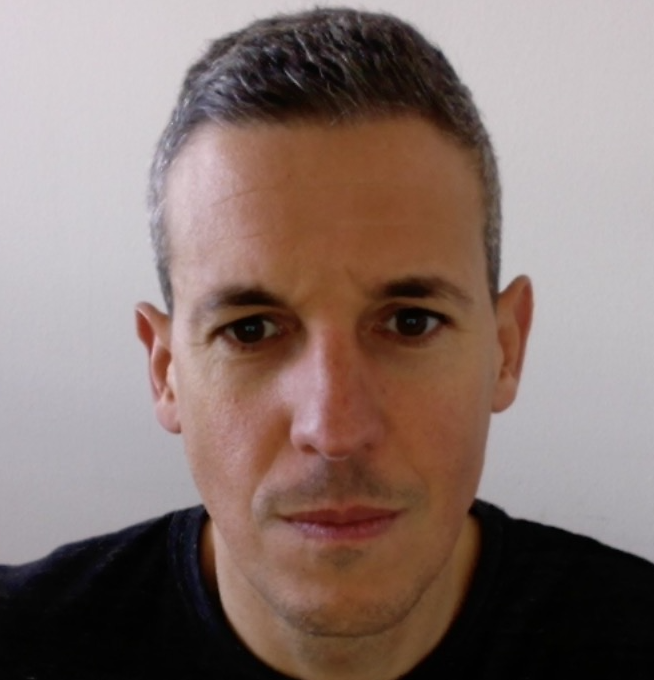Manuel
Iglesias
Alonso
Category
Científico Titular
Department:
ISQCH - Departamento 2: Catálisis y Procesos Catalíticos
Phone / Ext.:
+34 876 55 37 98
Email:
miglesia@unizar.es
Participant group:
ISQCH - Catálisis Homogénea por Compuestos Organometálicos
Line:
ISQCH LÍNEA 2 - CATÁLISIS Y PROCESOS CATALÍTICOS

Manuel Iglesias obtained his PhD degree in 2008 at Cardiff University (UK) working in the group of Prof. Kingsley J. Cavell on the chemistry of N-heterocyclic carbene (NHC) ligands and their applications in catalysis. In order to extend his knowledge on the chemistry of NHCs he moved to Prof. Martin Albrecht’s group at the University of Fribourg (Switzerland) for a post-doctoral stay. During this period he worked on (i) mesoionic NHC ligands and (ii) hybrid catalysts (polyoxometalate/Pd-NHC complex) and their application in cross-coupling and dehalogenation catalysis. Subsequently, he moved to University College Dublin (Ireland) for a second post-doctoral stay where he studied the chemistry of remote NHCs. In October 2010, he joined the group led by Prof. Luis A. Oro at the University of Zaragoza with the intention of expanding his expertise on the field of homogeneous catalysis. At this stage he started to develop a research line that focused on the use of N-heterocyclic carbenes (NHCs) and N-heterocyclic olefins (NHOs) as ancillary ligands for homogeneous catalysis. The proposed research rests on three basic principles: (i) development of new ligands based on NHC and NHO architectures (ii) preparation and characterization of metal catalysts based on first-row transition metals, (iii) development of molecular systems for hydrogen storage, and (iv) functionalization of organic molecules by catalytic processes. During this period, he enjoyed a "Juan de la Cierva" and a "Ramón y Cajal" fellowship, and he was awarded with “Premio de Investigación 2015” from the “Real Academia de Ciencias de Zaragoza”. Since August 2020, he holds a position of tenured researcher at the ISQCH ("Científico Titular del CSIC").
Manuel Iglesias se doctoró en Ciencias Químicas por la Universidad de Cardiff (Reino Unido) en 2008. Sus estudios de doctorado los realizó en el grupo del Prof. Kingsley J. Cavell, donde trabajó en la química de los ligandos tipo carbeno-N-heterocíclico y en su aplicación en catálisis. Con el objetivo de ampliar su conocimiento sobre la química de ligandos tipo carbeno, para realizar su primera estancia post-doctoral, se trasladó al grupo del Prof. Martin Albrecht en la Universidad de Friburgo (Suiza), donde trabajó en (i) ligandos NHC mesoionicos y (ii) materiales híbridos Pd-NHC / polioxometalatos y sus aplicaciones como catalizadores en reacciones de acoplamiento cruzado y deshalogenación. A continuación se desplazó al UCD (University College Dublin, Irlanda) para completar su segunda estancia post-doctoral. Allí estudió la química de coordinación y aplicaciones catalíticas de carbenos N-heterocíclicos remotos (rNHC) y de sus ligandos derivados tipo quelato y pincer. En octubre de 2010 se unió al grupo liderado por el Prof. Luis A. Oro en la Universidad de Zaragoza. La investigación llevada a cabo desde entonces se centra en: (i) el uso de arquitecturas moleculares basadas olefinas N-heterocíclicas (NHOs) y carbenos N-heterocíclicos (NHCs) para el desarrollo de nuevos ligandos polidentados, (ii) la síntesis y caracterización de catalizadores homogéneos basados en metales de de la primera serie de transición, (iii) el desarrollo de sistemas moleculares para el almacenamiento de hidrógeno, y (iv) la funcionalización de moléculas orgánicas sencillas. Como fin último se pretende desarrollar de manera racional catalizadores para la funcionalización de moléculas apoyándose en estudios mecanísticos. Durante este periodo le fue concedido un contrato Juan de la Cierva y un contrato Ramón y Cajal, recibiendo en 2015 el premio de investigación de la “Real Academia de Ciencias de Zaragoza”. Desde agosto de 2020 desarrolla su actividad investigadora en el ISQCH como Científico Titular del CSIC.
ORCID
SCOPUS